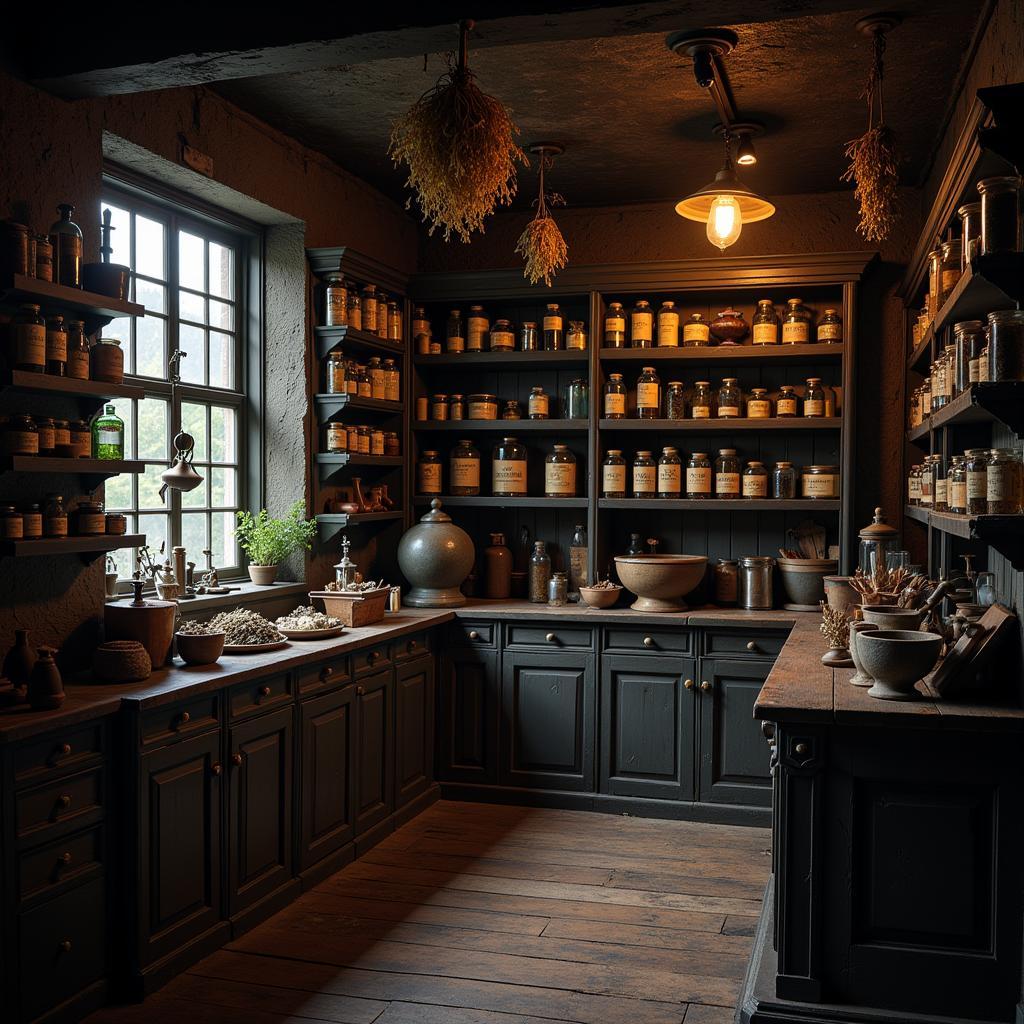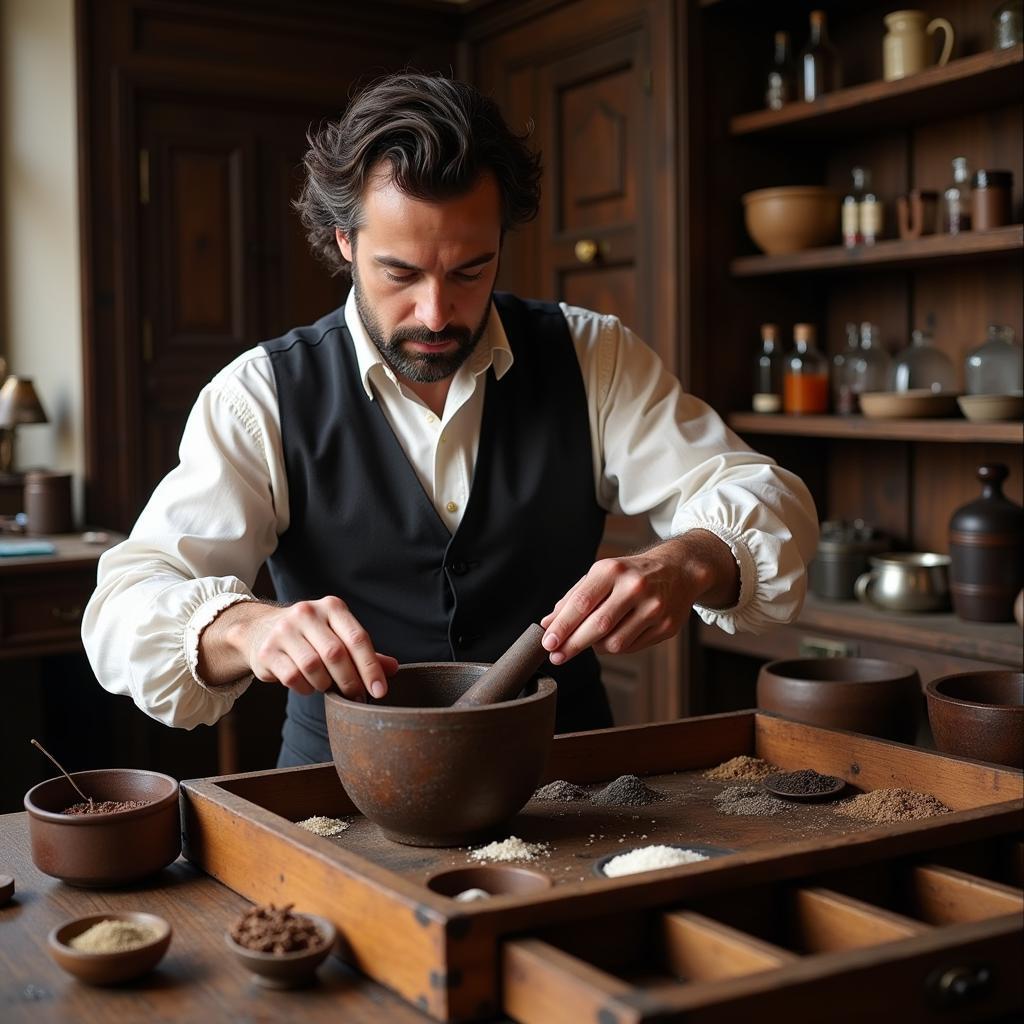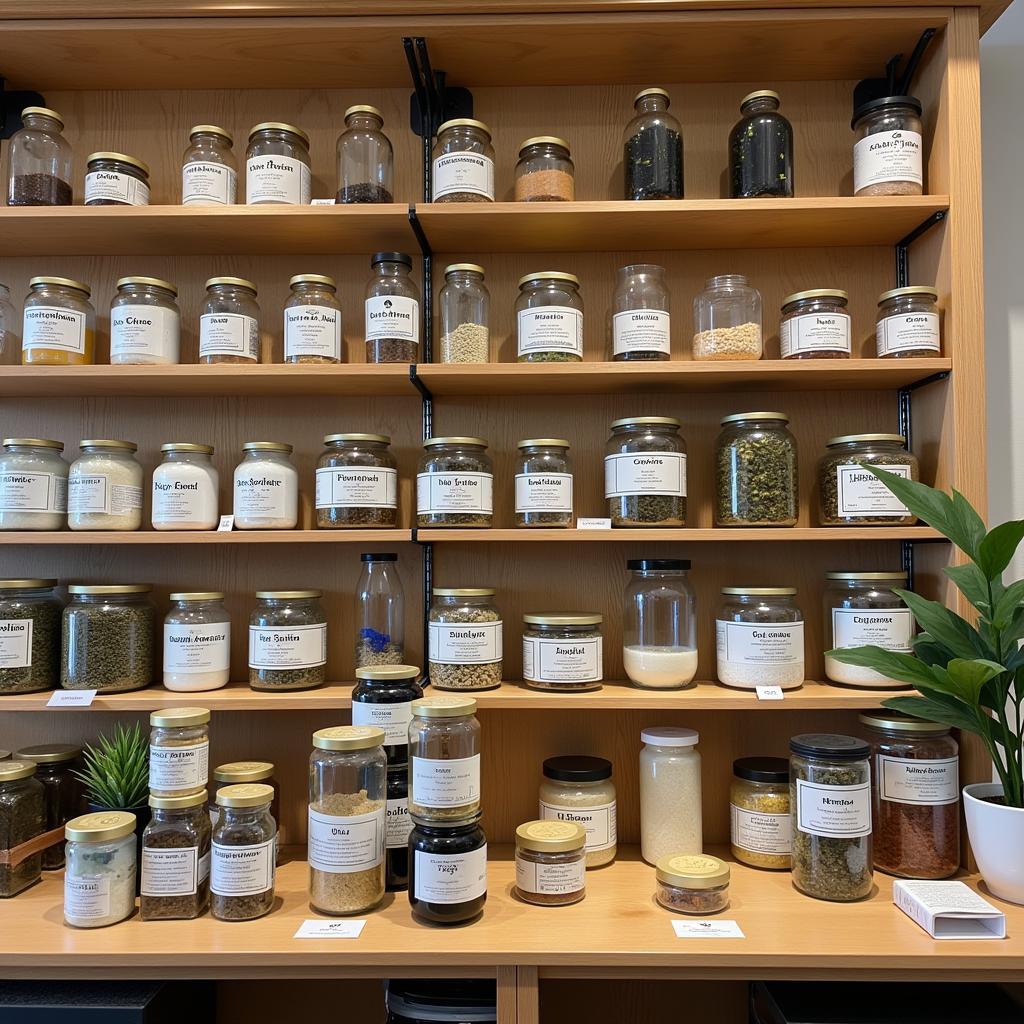Apothecary Potions: Magical Remedies or Medieval Medicine?
October 26, 2024For centuries, the image of an apothecary hunched over bubbling concoctions has captured imaginations. These mystical mixtures, often referred to as Apothecary Potions, evoke a sense of ancient wisdom and powerful magic. But what were these potions, and did they actually work?  An apothecary's shop filled with jars, herbs, and equipment
An apothecary's shop filled with jars, herbs, and equipment
The Role of the Apothecary
In a time before modern medicine, the apothecary was a respected figure in society, serving as a bridge between herbalism and early pharmacology. More than just merchants, apothecaries possessed knowledge of herbs, minerals, and other natural ingredients, using them to create remedies for various ailments. Their shops, filled with exotic spices, dried plants, and curious ingredients, were a testament to their trade.  An apothecary carefully measures ingredients for a potion
An apothecary carefully measures ingredients for a potion
Common Ingredients and Their Uses
Apothecary potions were often complex mixtures, utilizing a wide array of ingredients sourced from both near and far. Some common components included:
- Herbs: Chamomile for sleep, lavender for calming nerves, and willow bark for pain relief.
- Minerals: Sulfur for skin conditions, mercury (often dangerously) as a purgative, and iron for anemia.
- Animal Products: Honey for soothing coughs, beeswax for ointments, and even ground animal parts believed to hold medicinal properties.
While some of these ingredients, like honey and certain herbs, do possess medicinal benefits, others were based on superstition and outdated beliefs.
Fact vs. Fiction: The Efficacy of Potions
The effectiveness of apothecary potions varied greatly. Some, based on traditional knowledge and the healing properties of plants, offered genuine relief. For example, willow bark contains salicylic acid, the active ingredient in aspirin. Others, however, relied on magical thinking and had little to no scientific basis.
It’s crucial to remember that the apothecary’s world existed in a time without scientific rigor. Remedies were often passed down through generations, and the line between folklore and medicine was blurred.
The Legacy of Apothecary Potions
While the practice of apothecary has largely been replaced by modern pharmacy, its legacy lives on. Many modern medicines are derived from plants and natural substances once used by apothecaries.
Moreover, the image of the apothecary continues to fascinate, appearing in literature, fantasy games, and popular culture. The allure of these mystical healers, with their knowledge of nature’s secrets, continues to capture our imaginations.
 A modern pharmacy with a vintage aesthetic, showcasing herbs alongside medicines
A modern pharmacy with a vintage aesthetic, showcasing herbs alongside medicines
Conclusion
Apothecary potions offer a glimpse into a time when the natural world was the primary source of healing. While some remedies were effective, others highlight the limitations of pre-scientific medicine. Nevertheless, the apothecary’s legacy endures, reminding us of the enduring human fascination with healing and the power of nature.
FAQ
1. What is the difference between an apothecary and a chemist?
While both dealt with preparing medicines, apothecaries focused on herbal remedies and traditional knowledge, while chemists emerged later with a focus on chemical analysis and compounding medications.
2. Are there any modern-day equivalents to apothecaries?
Herbalists and naturopathic practitioners draw upon traditional knowledge of plants for healing, similar to apothecaries, but with a modern understanding of herbal medicine.
3. Were all apothecary potions dangerous?
Not all potions were dangerous, but some contained ingredients that were toxic or ineffective. The lack of standardized practices and scientific knowledge in the past posed risks.
4. Where can I learn more about the history of apothecary?
Museums dedicated to the history of medicine and science often have exhibits on apothecaries. Additionally, numerous books and online resources delve into the fascinating world of early medicine.
5. Are there any fictional accounts of apothecaries that you recommend?
Many fantasy novels and stories feature apothecaries, often with a magical twist.
Need Help?
For further assistance or inquiries, please don’t hesitate to contact us. Our dedicated customer support team is available 24/7 to assist you.
Phone Number: 0915117113
Email: [email protected]
Address: To 3 Kp Binh An, Phu Thuong, Viet Nam, Binh Phuoc 830000, Vietnam
We’re always happy to help!
You might also be interested in:
- Alchemy Shop Names
- Other captivating articles on our website exploring the history of medicine and the fascinating world of apothecaries.